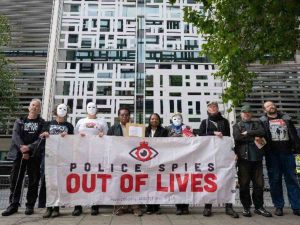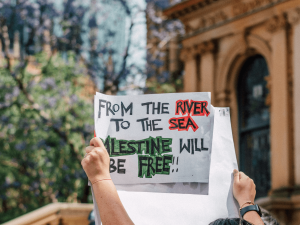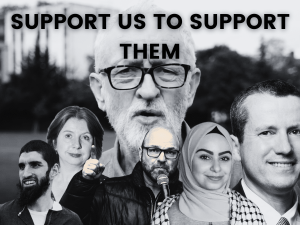Following several days of race riots, many have wondered how our new Labour Party PM Keir Starmer will react. Those who are familiar with his record probably had a good idea, as Starmer was the director of public prosecutions during the 2011 riots. His response then gives a good indication of the response he will demand now:
The police told me no one was getting bail that night. I asked the duty inspector how was it that between leaving my car and arriving at the custody the presumption of bail under the bail act had been suspended? Not true I was told but no one got bail that night. All RIC 2/
— Robin Murray (@robinthemint) August 3, 2024
Crack down on riots
Robin Murray is a “former winner of the Legal Aid Lawyer of the year award”. Describing his experience from 2011, he continued:
In the riot courts, there was a judicial bloodbath the next day. Duty solicitors overwhelmed huge delays and ultimately bail refused whilst many were sent to the Crown Court. And who was in charge of the CPS [Crown Prosecution Service]? Keir Starmer. Expect more of the same over the next few days…
to all clunk heads who think it would be fun to join a far right riot because you can expect your lives to be turned upside down as civil Society at times can react with a savageness that matches your own in order to protect the wider community.
You will be entitled to legal representation but even the best lawyers will struggle to save you from a judicial system geared up to send you a message. If you riot/ break the law expect ruthless retribution. I merely state this as part of my past experience not as judgment
I fought very hard with all the skills of many years in the legal profession but the tide of retribution flowing through the Legal system the last time this happened was overwhelming. I felt sorry for a few clients caught up with it who were more stupid than wicked.
Some were not the main key offenders, but were on the periphery simply and wrongly looting shops where others had smashed the glass. Sam had no prior convictions. All were reminded in custody. So don’t get caught up in this, stay home & don’t ruin your lives. Re-evaluate.
It seems like we’re going to see a similar response to that of Starmer and the coalition government of 2011, with 24 hour courts on the horizon:
🚨 BREAKING: Courts will be open and sitting for 24 hours a day under government plans to crack down on rioters
— Politics UK (@PolitlcsUK) August 3, 2024
There is some difference between now and 2011, however, in that Starmer is reportedly more ‘understanding’ of the racist goons who are cutting a warpath across the UK:
When Muslim communities vote peacefully against Labour, they are painted as an illegitimate threat to democracy.
But when the far right conducts racist riots, Starmer panders to their ‘legitimate concerns’.
Shameless. https://t.co/s304sFJSgc
— We Deserve Better (@_we_deserve_) August 3, 2024
The right in this country are genuinely too fucking stupid to realise that they now have a government completely aligned with all of their beliefs and are now protesting the implementation of all of their policies because Tommy Robinson told them Keir Starmer is transgender Hamas
— Eyup Lovely (@eyuplovely) August 3, 2024
The thing to bear in mind, though, is that this position of promoting racism with one breath and migration with the next has clearly run its course. Sooner or later, a section of the population will say ‘if foreigners are so bad, why are we letting them in?’. That point is now here – on the streets – violently manifesting the hatred our mainstream politicians and journalists have been feeding them for years.
2011
The riots of 2011 were far different than the race riots we’re seeing today. As Emily Apple wrote for the Canary in 2018:
In 2011, riots spread across the UK. They began in Tottenham after a protest over the police shooting of Mark Duggan. During the protests, the police refused to meet with Duggan’s family and friends. According to Paul Lewis, who covered the protests for The Guardian:
“What happened over the next four hours is subject to debate, but what is clear is that tensions gradually escalated, as police made only limited attempts to talk to the demonstrators.”
Lewis also reported that it was an incident with a 16-year-old girl that ‘sparked’ the riot:
“Others present said the spark for the rioting was a specific incident involving a 16-year-old woman, who stepped forward to confront police around 8.30pm, demanding answers, but was attacked with shields and batons.
“They beat her with a baton, and then the crowd started shouting ‘run, run’, and there was a hail of missiles,” said Anthony Johnson, 39. “She had been saying: ‘We want answers, come and speak to us.’”
And as the protest escalated, a doubledecker bus was set on fire and missiles were thrown.
The riots spread across London and the UK during the next few days. There was widespread damage to property and looting, and five people died.
In a 2013 essay, professor Sarah Lamble wrote:
The events of August 2011—which began with a peaceful demonstration outside a police station in Tottenham to protest the fatal police shooting of twenty-nine-year-old Mark Duggan and subsequently erupted into five days of rioting, looting, and burning in cities across England, presented the state with a political opportunity.
Clearly these events were a sign of widespread rage, disaffection, and discontent, and they stemmed from deeper problems that had been brewing for years. But rather than seize the moment to confront these issues, the government chose instead to simply extend its law, order, and moral “responsibilization” agenda.
She also spoke about how the state ignored its own laws to come down heavy on the lawbreakers:
Questions were raised about the proportionality of sentencing as well as political interference with the judiciary’s supposed independence, particularly when it was revealed that magistrates had been advised to disregard normal sentencing guidelines for riot-related offenses…
There were many striking cases: a twenty three-year-old with no prior convictions sentenced to six months imprisonment for stealing £3.50 worth of bottled water; a twenty-two-year-old sentenced to sixteen months for stealing ice cream; a forty-eight-year-old sentenced to sixteen months for stealing doughnuts; a woman who slept through the riots but was imprisoned for accepting a pair of shorts that had been looted by her lodger; and two young men sentenced to four years each for attempting to incite a riot via Facebook, even though their posts did not result in any such action…
Despite appeals, most sentences were upheld on the grounds that the context of the riots constituted an aggravating factor that warranted additional punishment…
The consequentialist rationality standard that was so stringently applied to those who participated in the riots did not apply to those doling out punishment. Stiff sentences were publicly justified on the need for deterrence, despite the lack of evidence that longer sentences have any such effect—a fact that even the director of public prosecutions admitted…
The vengeful state
The riots across the country have been difficult to watch:
This is not a “protest” it is a racist lynching. It must be met with united, mass and popular force to push these fascists back. As for various figures on the right saying this is all about “legitimate grievance”. No – this is violent racism. Stop apologising for it. https://t.co/kHfBEfge4c
— Kevin Ovenden (@kevin_ovenden) August 3, 2024
The Spellow Hub on County Road is on fire. The Spellow is a library which reopened last year and provides support for people of all abilities to gain education and a path to employment. Truly awful https://t.co/tLQs6Iu97X pic.twitter.com/8AvipWjmWU
— Jamie Greer (@jamiemgreer) August 3, 2024
The arsonists last night destroyed a Citizens Advice Bureau.
For those outside the UK, that’s a place where the British public, particularly low income or disadvantaged communities, get free legal advice and support.
Staff are devastated.
“We’re protecting our community” pic.twitter.com/4BtR3zGVZ8
— Stan Collymore (@StanCollymore) August 3, 2024
Anyone with more than two brain cells looks at these rampaging goons and wants to see them and their movement obliterated. In that sense, few will shed a tear when judges hand down disproportionate sentences to the hate mobs.
We need to be aware of the situation we’re in, though.
Starmer and the riots: he’s coming for all of us
Starmer isn’t going to crack down on these riots because he recognises a civilised society cannot tolerate the intolerable – he’s going to do it because he’s Mr Crack Down.
He would have reacted the same way to the Black Lives Matter protests, and to those who protested against the Tories when they repressed our right to protest in the first place.
He will react the same way to those protesting against climate change, even as climate scientists warn us the effects are outpacing their worst fears.
When the effects of climate change lead to more migration and Starmer’s policies do nothing to slow down either issue, he’ll crack down on the resulting chaos from every angle, and the resentment will grow in line with the problems his government is failing to fix.
Starmer is a cop first and foremost, and this fact will inform every action he makes as prime minister.
Featured image via the Times (YouTube)




